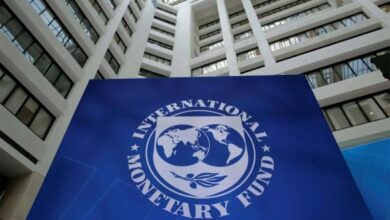WHO Says 112 African Health Workers Are Infected With Coronavirus

The World Health Organization (WHO) has revealed that since the beginning of the coronavirus (COVID-19) pandemic in Africa, a total of 112 health workers from 16 countries have been infected with the virus.
WHO disclosed this in a weekly Bulletin on outbreaks and other Emergencies week 16 which covers April 13 to 19 released on Tuesday and posted on WHO Africa twitter account @WHOAFRO.
This Weekly Bulletin focuses on public health emergencies occurring in the WHO African Region.
The WHO Health Emergencies Programme is currently monitoring 108 events in the region.
This week’s main articles cover key new and ongoing events, including COVID-19 in the WHO African Region, Ebola virus disease in the Democratic Republic of the Congo and Measles in the Democratic Republic of Congo.
According to the report, Cameroun has reported the highest number of COVID-19 confirmed cases of health workers at 25, followed by Niger, 13; South Africa, 13; Mauritius, 11; Cote d’Ivoire, 7; Sierra Leone, 11 and Republic of Congo, 4.
The report stated that the Democratic Republic of Congo (DRC) has reported 10 confirmed cases of health workers; Togo, 6; Madagascar, 5; Namibia, 2, while Benin, Central African Republic, Eswatini, Guinea-Bissau, and Kenya recorded 1 case each.
READ ALSO: UN Receives €1.2m From EU To Fight COVID-19 in Nigeria
According to the bulletin, most 96 percent, representing 45 countries in the WHO African Region have been affected by the current COVID-19 global pandemic, with only Comoros and Lesotho reporting no cases.
Since week nine of 2020 (week ending February 25), when the outbreak was first detected in the region, a marked increase in the number of confirmed cases has been observed.
In week 16 (week ending April 19), a total of 4, 405 new confirmed cases were reported, compared to 3, 473 cases reported the previous week, a 27 percent increase in the total number of reported cases.
In addition, there was a 43 percent increase in the number of deaths (658) observed since the previous week, when 461 deaths were reported.
As of 19 April 2020, a cumulative total of 14, 068 confirmed COVID-19 cases and 658 associated deaths (case fatality ratio 4.7 percent) have been reported across 45 countries in the WHO African Region.
Some of the countries most affected are: South Africa, 3 158; Algeria, 2,626; Ghana, 1 042; Cameroon, 1 016; Cote d’Ivoire, 847; Niger, 648; Burkina Faso, 565 and Nigeria 541 confirmed cases.
These eight countries account for 74 percent of the cases reported in the region. Notably, two countries (Republic of Congo and Tanzania observed exponential increase in their number of confirmed cases in week 16.
Tanzania observed an increase in a number of confirmed cases which rose by 434 percent from 32 to 171 cases and the Republic of Congo by 104 percent from 70 to 143 cases.
Seven countries Angola, Gambia, Mauritania, Namibia, Sao Tome and Principe, Seychelles and South Sudan have not reported any new confirmed COVID-19 case during week 1.
The bulletin further stated that 658 deaths occurred in 31 countries.
Six countries in the region have shown very high case fatality ratios: Algeria 14 percent which 375 deaths out of 2, 629 confirmed cases and Democratic Republic of Congo 8.0 percent (25/332).
Mali recorded 6.3 percent fatality ratio (14/224), Burkina Faso 6.4 percent (36/565), Kenya 5.2 percent (14/270) and Republic of Congo 4.2 percent (11/143).
According to the report, the COVID-19 outbreak continues to expand rapidly in the WHO African Region, with 96 percent (45/47) of countries being affected.
Only Comoros and Lesotho are still apparently free of the disease. The cumulative number of confirmed COVID-19 cases is now 14 068 and the number of deaths is steadily growing, standing at 658, an increase of 43 percent over the previous week.
The disease is now spreading from the capital cities to the inter-land, with most countries in the region experiencing local transmission, and a few progressing to community transmission.
Most countries are implementing lockdown measures of various types, with varying the degree of societal impact.
To prevent this outbreak from further intensifying in the region, it is critical that all governments step up implementing a strong public health response:
“Physical distancing, handwashing, finding cases, providing care and isolation, contact tracing and isolation and additionally, countries need to ensure,’’ it added.
In addition, WHO emphasized that the outbreak of COVID-19 had spread to most countries in the WHO African Region, with an associated upsurge in the number of cases and deaths in the past weeks.
The agency said that many countries were now experiencing local transmission, with a few beginning to see widespread community transmission.
Rigorous efforts are needed to bring this situation under control.
WHO continues to advise all countries in the region to scale up their public health response measures aimed to contain further spread of the disease.
In areas with a widespread or potential widespread transmission, countries will need to quickly adapt mitigation measures to reduce the impact of the pandemic.
Juliet Ekwebelam












